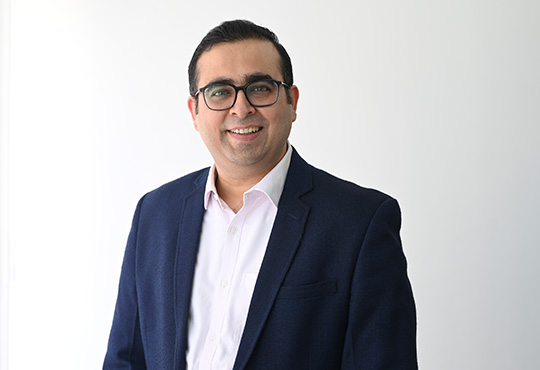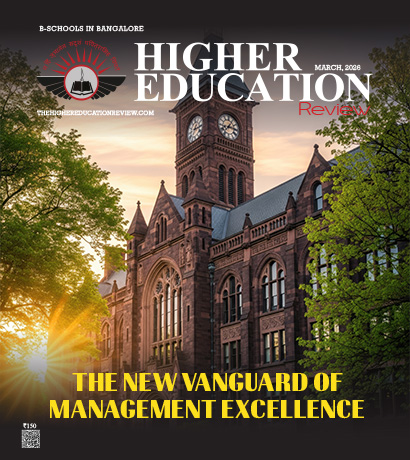The Crucial Role of Higher Education in Building Future Ready Workplaces
 Sachin Khurana is a people-centric leader with a strong track record in developing and implementing industry-leading people management practices. He is known for fostering a highly motivated and empowering workplace culture that drives consistent organizational growth. Before joining Happiest Minds, Sachin led the people function at OSSCube and held key HR leadership roles at Lodha Group and Citigroup Global Services. He firmly believes that true success is rooted in teamwork, collaboration, and mutual trust.
Sachin Khurana is a people-centric leader with a strong track record in developing and implementing industry-leading people management practices. He is known for fostering a highly motivated and empowering workplace culture that drives consistent organizational growth. Before joining Happiest Minds, Sachin led the people function at OSSCube and held key HR leadership roles at Lodha Group and Citigroup Global Services. He firmly believes that true success is rooted in teamwork, collaboration, and mutual trust.
In a world redefined by AI, automation, and evolving work models, the rules of work are being rewritten in real time. The future is not approaching — it is already here. And while industries strive to reskill and upskill their existing talent, the deeper transformation must begin much earlier. It must begin in our institutions of higher learning.
According to the World Economic Forum, nearly half of the global workforce will require reskilling by 2025. But future readiness is not about catching up to disruption. It is about anticipating it. That demands a bold reimagination of higher education — from static courseware to adaptive, dynamic learning ecosystems.
Universities must break free from the confines of traditional academic silos. In a world where AI is becoming foundational, digital fluency can no longer be reserved for engineering students alone. Whether one is pursuing humanities, design, or business, a baseline understanding of data, systems thinking, and ethical tech application must become integral to the curriculum.
Emotional Intelligence, Critical Thinking, & Adaptability
Equally vital is the development of emotional intelligence, critical thinking, and adaptability — human capabilities that technology cannot replace and that will define career relevance in the years ahead.
The future-ready institution is one that rethinks how knowledge is delivered. Experiential, interdisciplinary, and project-based learning must replace legacy lecture formats. Encouragingly, over 60 percent of India’s leading higher education programs have adopted such methods — from hackathons to live industry collaborations and design sprints — signaling a shift toward immersive education.
Democratized access to High-quality Skill-building
Digital learning platforms have further democratized access to high-quality skill-building. With over 20 million Indian enrollments in MOOCs last year alone, the appetite for self-driven learning is growing rapidly. But sustainable change depends on equipping educators themselves to evolve. Faculty must be immersed in current industry practices to impart skills that are both relevant and real-world ready.
True future readiness also demands equity. At present, only 27 percent of higher education enrollments in India are from underrepresented communities. This gap must be addressed with urgency through scholarships, mentorship, and digital infrastructure that enable broader participation.
While many organizations today are focusing on continuous learning and internal mobility to prepare their workforce, the foundation of a truly future-ready professional is laid much earlier. Within the classrooms and corridors of higher education, young minds are shaped with the confidence, curiosity, and capacity to adapt.
The future of work is not just an organizational imperative. It is a national and societal responsibility — one that must be shared between educators, learners, and changemakers. It is time to move beyond preparing students merely for employment. The goal must be to prepare them for lifelong relevance, impact, and purpose in an ever-changing world.

